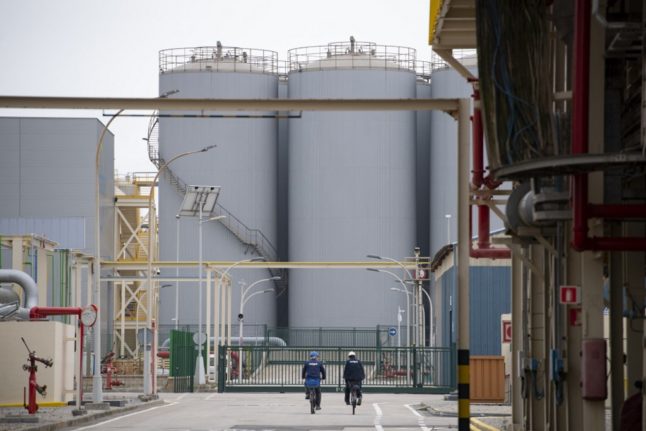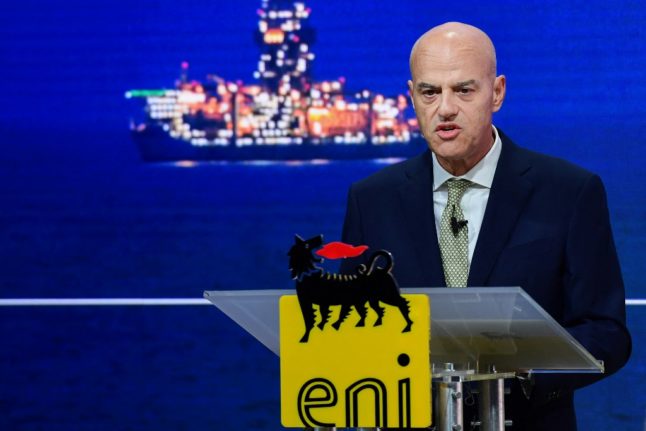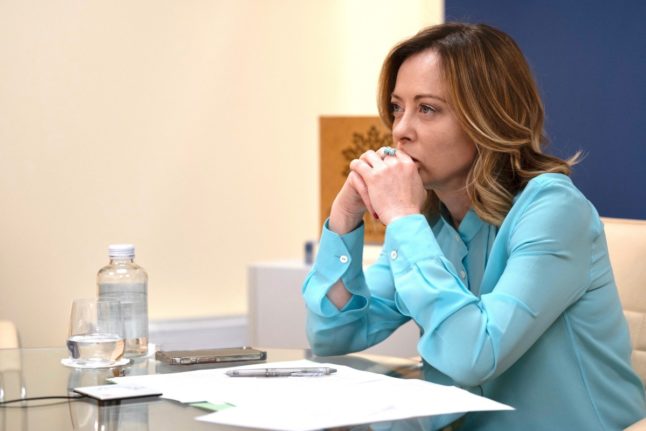Despite recent issues regarding Russian supplies, Italy should have enough gas to make it through the winter, said Claudio Descalzi, the CEO of Italian energy giant ENI, on Thursday.
“Russian gas has effectively been replaced” and the current conditions should afford the country some “tranquillity” ahead of the winter season, he added.
READ ALSO: Russia will resume gas deliveries to Italy, Gazprom says
Prior to Russia’s invasion of Ukraine, gas from Moscow accounted for about 40 percent of Italy’s annual gas imports.
At the moment Russian gas only accounts for around 10 percent of the country’s supply, with deliveries sitting around “10-15 million cubic metres per day”, said Descalzi.

ENI’s CEO also expressed contentment over the country’s gas-storing efforts, saying that national stocks “will soon be completely full” – according to the latest available indications, 90 percent of them have already been filled up.
Descalzi’s words of reassurance came only a day after Russian energy giant Gazprom resumed gas deliveries to Italy.
As previously reported by The Local, the supply of Russian gas to Rome was suspended last Saturday, reportedly due to disagreements over contractual obligations between Gazprom and Austrian energy regulator E-Control.
The incident raised reasonable fears of a long-term suspension of Russian gas supplies, with Ecological Transition Minister Roberto Cingolani and Descalzi both stepping in over the weekend to reassure citizens about Italy’s gas reserves.
Descalzi admitted on Thursday that “technical issues on the part of suppliers” or an “exceptionally cold winter” might cause problems for Italy’s energy plans.
That’s why, he said, “regasification plants are so vital for next year’s winter” and to give further stability to the system.

READ ALSO: What does the shut-off of Russian gas supplies mean for Italy?
Though Italy is betting heavily on Algerian gas in order to wean itself off Russian supplies – Algeria will supply Rome with as many as nine billion cubic metres of gas next year – the country will also receive a total of four billion cubic metres of LNG (Liquefied Natural Gas) from different African partners over the course of 2023.
Regasification plants, which essentially work to convert liquid gas to its gaseous state, will then be essential to unlock the potential of the new LNG supplies.
Italy currently has three active regasification plants, but the construction of a fourth one near Piombino, Tuscany is now under consideration.



 Please whitelist us to continue reading.
Please whitelist us to continue reading.
Member comments